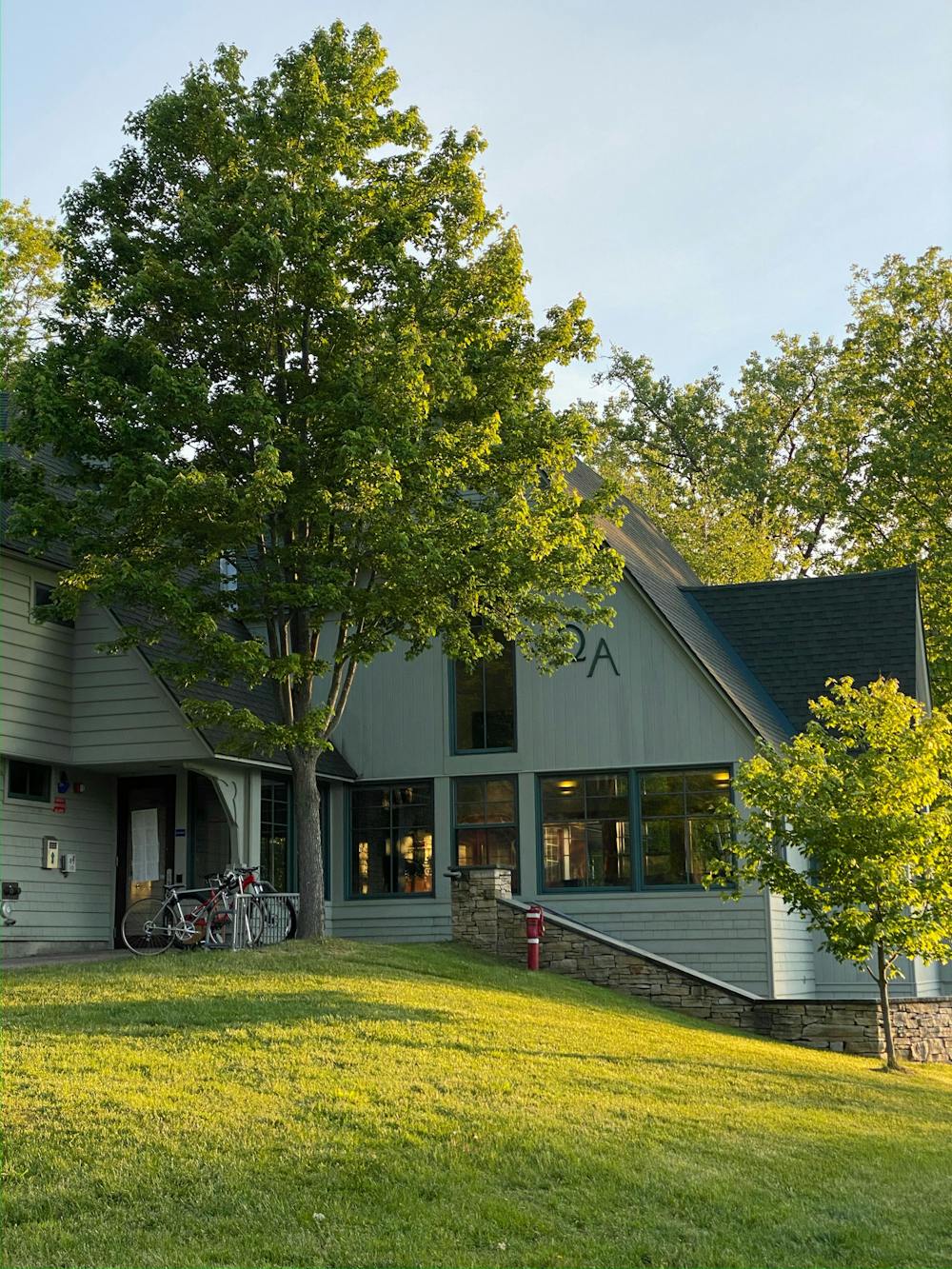With both academic and social events returning to in-person meetings this fall, some social houses have seen an uptick in new member interest.
The five social houses — Chromatic, the Mill, PALANA, Tavern and Xenia — recruit members through different processes during the year, integrating interested students into the existing community. Following semesters of restricted social gatherings, several houses have noticed an increased demand for opportunities to connect through house events.
“We definitely have a large uptick in [new members] this year which has been awesome and we are all very excited about that and about opening our community more broadly,” said Arlo Fleisher ’21.5, president of the Mill, in an email to The Campus.
Social houses like Tavern provide an opportunity for students of similar interests to meet in a comfortable setting, according to Tavern President Henry Ganey ’22.
Tavern, known officially as Omega Alpha and to many Middlebury students as simply “Tav,” aims to form friendships through its new member recruitment process.
“It can feel like you're just kind of shoehorned into one group, based on where you lived,” Ganey said. “I think social houses give you the opportunity to meet people from outside of those groups who still have similar interests to you that you wouldn’t have met otherwise,”
According to Katya Juarez ’24, who joined Tavern this semester, the organization looks to foster friendships within new member classes, making them communities rather than random groups of people.
“There have been moments where people become vulnerable and allow the whole group in,” Juarez said.
Juarez said she enjoys being able to casually hang out with other new members — as well as older members — in Tavern’s lounge and be welcomed into the community’s existing friend groups.
Tavern, in addition to being a social and living space, also engages its members in community service— all members are required to complete five hours of service per semester, according to the Omega Alpha constitution. Tav tends to have a large group of new members each semester — somewhere between 40 and 80 people, according to Ganey.
“It seems like many students enjoy and appreciate their experience with social houses and build strong connections with people they met through those organizations,” Associate Dean for Student Life AJ Place and Director of Student Activities Amanda Reinhardt said in an email to The Campus.
Xenia, the substance-free and low-use residence located in Bowker House, houses only six residents; currently, all are sophomores.
In the past, Xenia has focused on alternative social events to foster a substance-free lifestyle and community. President Abraham Merino ’24 said that the substance-free rule only applies within Xenia house — members are free to consume when they are outside of the house. Merino noted that the lack of substances makes the house a cleaner and more relaxed social and living environment.
Merino said he found his first year difficult, which inspired him to join Xenia.“I felt like I was one of the only people who didn't want to drink,” he said.
Xenia’s welcoming and relaxed living environment was a major motivation to live there for Merino.
“It's kind of hard to escape [other students] partying.” Merino said. But at Xenia, “If you want to wake up early on the weekend, you can probably do that.”
As student social activities increasingly come to resemble pre-pandemic campus culture, many underclassmen are joining social houses to expand their social circles and find new communities on campus. For many, that has meant joining social houses, where they can form friendships beyond their class year, something that was difficult under pandemic restrictions last year.
Ben Wagner (he/him) is a Local Editor.
Wagner has previously served as an SGA Writer and Staff Writer. He is an IGS-Global Environmental Change major, and is minoring in Religion. When not up to other shenanigans, Ben loves playing outside and riding his bike.




